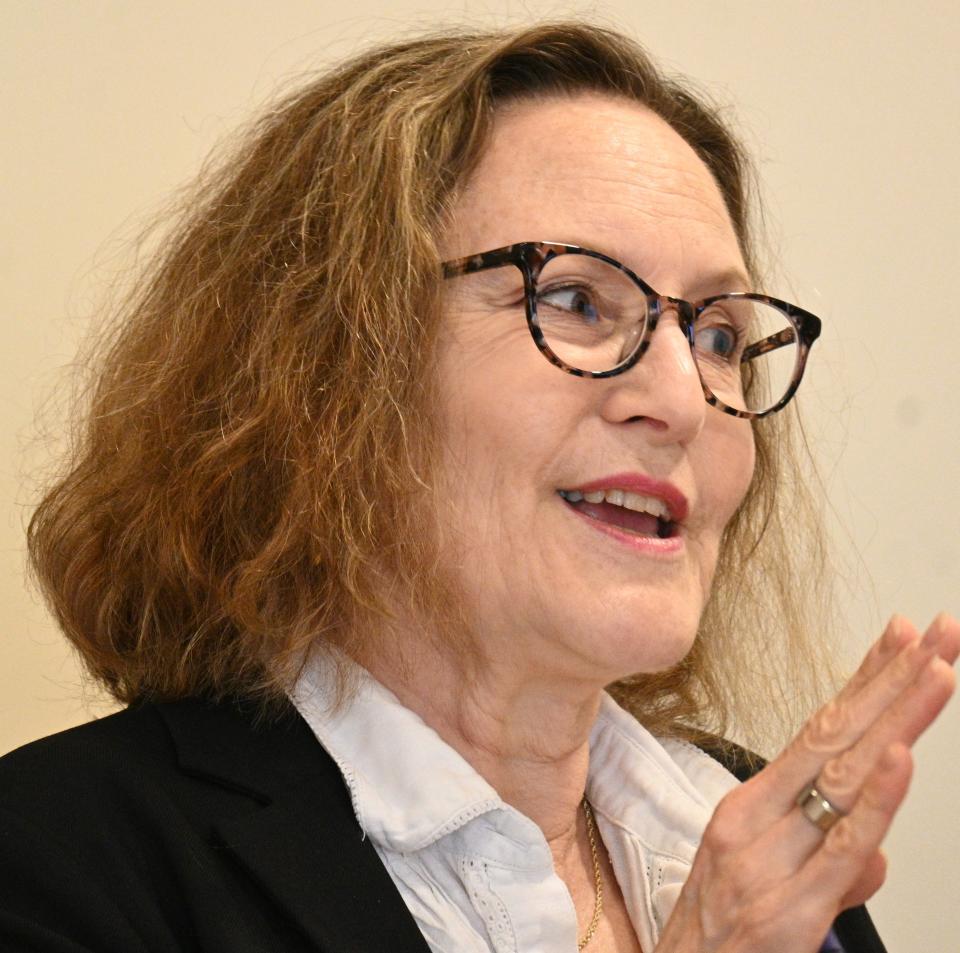Planning commission modifies conflict-of-interest rules
After more than a month considering amendments to a decades-old bylaw, Coldwater Planning Commission on Monday changed its draft and approved new guidelines.
Three were minor, but the fourth would have had an impact on prior decisions regarding recreational cannabis in downtown Coldwater. It could affect future decisions.
Commissioner Dave Rumsey, who owns property downtown, questioned the wording of those who must declare a conflict. One paragraph stated that a conflict exists if the commission is "issuing, deliberating on, voting on or reviewing a case concerning work on land owned by him or her or which is adjacent to land owned by him or her."
Rumsey said it does not contain definition of "adjacent." If it includes nearby property, both he and chairman Aaron Garn, who also owns property downtown, would have conflicts, since most of the small downtown area is adjacent.
Each had a critical vote in the decision to ban recreational cannabis from downtown. If both were recused, the vote would have allowed sale of marijuana in the C-2 central business district.
City attorney Megan Angel told the commission that "adjacent" usually means touching the parcel in some manner.
The commission voted to add "immediately" prior to the word adjacent.
Commission member Rick Stevens noted both he and commissioner Andrew Cameron have conflicts of interest and must not vote on zoning issues involving the utilities.
CBPU electrical engineer Andrew Cameron is the administrative ex officio member appointed by the mayor under the city charter.
Asked about participation, Angel told Stevens, "You certainly can answer questions because you have information, and they want to know further information. There's no reason to put that off." That has been the practice for years.
Stevens stated, "We never vote, we never lead a conversation."
Stevens has recused himself in the past.
Angel explained the process for a member before an issue is discussed is to present to the commission a potential conflict of interest. Then, it is up to the commission to vote to determine if there is a conflict.
The planning commission also removed the bylaw provision, which had required a person with a conflict "during deliberation of the agenda item before the commission, leave the meeting or remove oneself from the front table where members of the Commission sit until that agenda item is concluded."
That person simply could not participate in that discussion.
Commissioners also agreed the "public comment" portion of its agenda should come before any public hearing, to ensure comments were heard from members of the community.
A fourth item is in the city charter, regarding member appointments. The mayor is included on the commission under the charter. The mayor's members are appointed and confirmed by the city council to serve three-year terms.
The state planning commission legislation bans members of the council or mayor from along with any city employee. State law does allow cities whose charter allows this practice to continue to fill those posts.
The mayor, council members and administrative officials are "ex officio" members. The mayor's term shall correspond to his term, as does the administrative official's term.
The mayor has appointed the council member/commissioner, but the charter requires the council to nominate that member each April.
All city boards and commissions are adopting or revising bylaws to comply with requirements as a "Redevelopment Ready Community" through Michigan Economic Development Corporation.



This article originally appeared on The Daily Reporter: Planning commission tweaks conflict of interest rules

